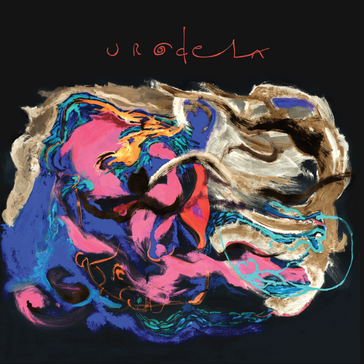ANDERS P JENSEN
New album
Det Foranderlige Instrument
Det Foranderlige Instrument
The Ever Changing Instrument
On "Det Foranderlige Instrument" which translates "The Ever Changing Instrument" Danish composer, musician and teacher Anders P Jensen has designed a special instrument, that consists of 24 Yamaha DX-7 synthesizers. Inspired by composers like Harry Partch, Björk and John Cage, who all have worked with prepared instruments or self-made instruments, APJ has built an instrument where preparations are constantly changing based on complex randomised processes.
The Japanese DX-7 from 1983 is one of the most popular synthesizers in music history with more than 200.000 units sold. The synthesiser that was famous for its clean 80's digital sound in pop music, is here presented in a completely new setting.
"The DX-7 was a mystery in my youth due to the streamlined design and the complicated digital FM technology. No one could program the instrument, and therefore the same factory presets could be heard on so many pop-productions in the 80’s. You could say that the DX-7 was stuck in time. On this album, I wanted to rediscover the instrument, and thereby give the instrument new life." APJ
APJ has a deep passion for electronic instruments, with a long history, combined with various compositional strategies and techniques in an attempt to find new musical land. To drive the 24 DX-7’s an accompanying software controls several parameters in the synthesizers to change autonomously - the instrument has a life on its own. The compositional and improvisational process is constantly affected by the instrument changing scales, sounds, tuning, volume, etc. Using special controller pedals, APJ can control the degree of randomisation.
The result is an experimental electronic symphony in 12 movements and should be heard as one continuous piece. Besides APJ on synthesizers, the album also includes Zhang Yu on guzheng. "Study No. 11" is composed by Conlon Nancarrow, and here arranged for the DX-7s.
Stream here
Buy vinyl here
Review


